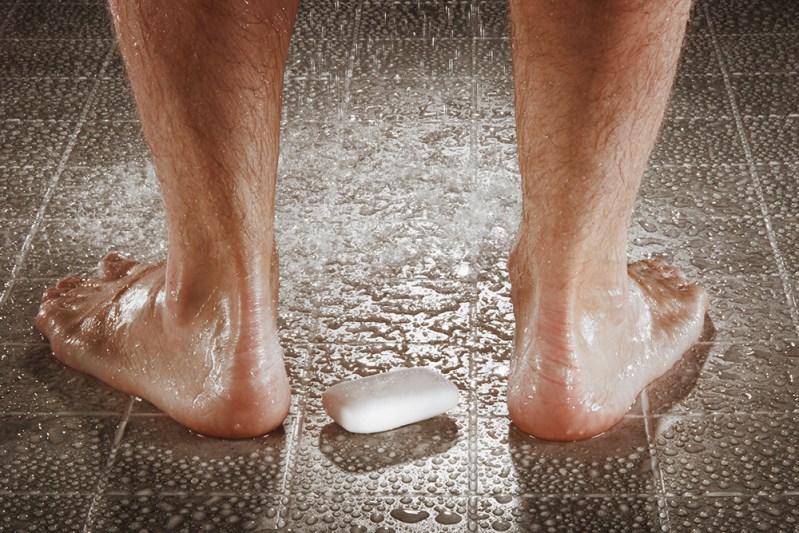
Much like wearing a face mask in public, or wearing a seat belt while driving, it is a truth universally acknowledged that a man should wash his legs in the shower. But there are always a few contrarians for every rule.
Case in point: Comedian Neal Brennan, who sparked a Twitter debate on Sunday when he bravely announced that he did not, in fact clean his lower legs and feet.
“When I shower, I do a full upper body lather and wash my front and back mid-bits,” Brennan, who was the co-creator of Chappelle’s Show, wrote on Twitter. “As far as legs are concerned, I’ll froth my upper thighs and let the soap trickle down. I don’t think I’ve ever washed my calves … This has been my method since childhood.”
The reactions to his confessions were far from clean. One Twitter user described it as, “aggressively filthy for no damn reason.” Meanwhile another commenter succinctly wrote, “ya nasty.”
But is this public denouncement an overreaction? A crude example of hygiene shaming? Have we been approaching body washing all wrong? After all, Twitter users have been arguing the merits of leg washing since 2019. That’s why we turned to a couple of dermatologists to weigh in on the practice once and for all.
“I understand why this question is controversial, and the answer depends on the person, their skin type, and their lifestyle,” says Anne Allen, an MD and Online Dermatologist at FirstDerm.com. “Too little washing can lead to a condition called retention hyperkeratosis where a thick layer of built-up skin cells and dust accumulates on the skin over time. ”
Dr. Shari Sperling, a board-certified dermatologist and founder of Sperling Dermatology in Florham Park, New Jersey, agrees.
“Yes, you should wash your legs,” Sperling tells The Manual. “They are a part of your body that should be cleansed just like other areas of the body. While the debate discusses excessive washing, etc., there is no need to scrub and use harsh cleansers. You want to avoid that to prevent skin irritation. However, gentle washing daily is okay!”
If you have sensitive skin, or skin conditions like eczema, Allen recommends space out your leg washing to just once or twice weekly, with gentle, pH-balanced cleansers like Dove Bar Soap, Cetaphil, or Cerave.
“For the same reason, people prone to eczema or dry skin should wash their ‘smelly’ parts like underarms, groin, buttock, and feet daily and avoid washing other areas of the body unless there is visible dirt or skincare products that need to be removed,” Allen says.
The verdict is unanimous: Unless you want your calves and toes to grow what look like fish scales, you should absolutely wash them regularly.


